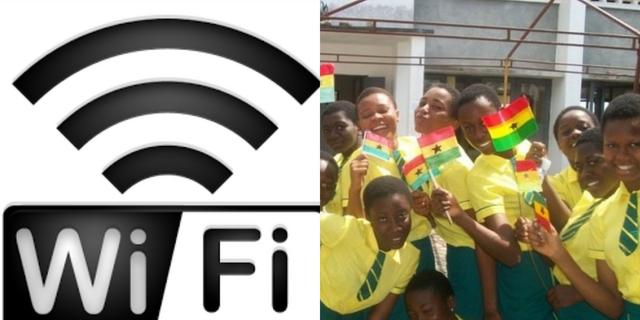A report issued by the African Education Watch (Eduwatch) has indicated that about 78 percent of the 138 Senior High Schools (SHSs) that responded that were surveyed did not have functioning Wi-Fi despite the rollout of the free WI-FIporgramme.
The report stated that a random sample of 150 SHSs out of the 717 that received connectivity was undertaken, out of which 138 (92%) of key informants who are staff of the schools responded to the survey instrument. Data verification was conducted in 20 per cent of responding schools. Data was collected from 24th May to 5th June 2023.
The schools include St. Augustine’s College, Presby Boys SHS – Legon, Bishop Herman College, St. John’s Grammar SHS, Ejisu Senior
High Technical School (SHTS), Bekwai SHS, Bolgatanga Technical Institute, Akatsi SHTS, Wa SHS, and Ola SHS, among others.
However, in 22 per cent of the schools, including Bongo SHS, Krachi SHS, Akuse Methodist SHTS, Akrofuom SHTS, Amenfiman SHS, Manya Krobo SHS, Kurofa Methodist SHS, Odupong SHS, J. E. A Mills SHS, and St. Mary’s Seminary SHS, the Wi-Fi facility was working and accessible.
Follow-up interviews conducted by the researchers with key informants in schools with functioning Wi-Fi indicated that the Wi-Fi was useful in facilitating learning at the computer laboratories, while enabling teachers to access internet for academic research from their office desks without having to commute to computer lab. Administratively, communication is enhanced, using email systems.
The only challenge was limited coverage, as many Wi-Fi signals were only accessible at the administrative and ICT departments, excluding classrooms. This meant, teachers, while teaching, could not access the Wi-Fi, the report added.
The second question on when the free Wi-Fi stopped working was posed in the survey to enable Eduwatch appreciate how long the state may have been paying for Wi-Fi services SHS were not enjoying.
In its observation, the report said “the free Wi-Fi facility has enhanced access to internet for academic research and administrative communication. However, given that the MoE incurs a monthly cost of GHC 6.3 million on the programme, the fact that two-thirds of sampled SHS did not have functioning Wi-Fi, with some having down time spanning over a year, gives a strong indication of low programme efficiency. Interventions to improve programme efficiency are critically required.”
Regarding recommendations, it said “The Ministry of Education must strengthen the system for verifying the quality of service provided by Busy Internet Ghana Ltd., based on which payments are made for their service. This must include monthly reports from all user institutions on the functioning of their Wi-Fi facilities.
“Secondly, efforts must be made to extend the Wi-Fi coverage to classrooms. This will ensure real time access to the internet by teachers when teaching.
“Finally, a performance audit must be commissioned by the Auditor-General into the free WiFi programme to ascertain its full-scale efficiency and advise accordingly.”
It is recalled that in 2020, Vice President, Dr. Mahamudu Bawumia announced that the next administration of the New Patriotic Party (NPP) would provide SHS and tertiary institutions across the country with free Wifi.
Speaking at the manifesto launch of the party, Bawumia said this was to boost learning among students and broaden the scope of Information, Communication, and Technology (ICT) education and research.
He said “The process has started and a contract has already been awarded. ECG is also leveling its fibre network across the country” adding that the government is expecting the work on the free wifi initiative to be completed by the year 2021.
To that end, the Minister of Communications, Mrs. Ursula Owusu Ekuful, said the government’s policy to roll-out free internet for Senior High schools in the country has been achieved.
“I can happily announce that 90% of Senior High Schools in the country have been connected to free Wi-Fi.
“The challenge now is how to replicate that in the Junior High schools as the Education Ministry seeks to introduce blended learning (a mixture of virtual learning and face to face) and so we will need to put in place the infrastructure to support such. It is one of our priority areas,” she said in a Facebook post.


